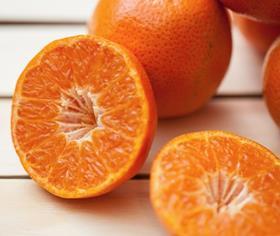
A new mandarin hybrid has been released in South Africa which could significantly change the country’s soft citrus offer, specifically in the mandarin category.
The significance of the new variety is that it is termed a mid-season variety and is therefore harvested before the better-known late season varieties. This will extend the South African mandarin season significantly.
The variety, named Leanri, is being commercialised by Citrogold in South Africa and Biogold International in other parts of the world. These companies are part of the ANB Group that is also renowned for the globally successful ClemenGold mandarin brand.
The ANB Group of companies includes Citrogold in South Africa and Biogold International, as well as such other organisations as Indigo, Du Roi Nurseries & Lab, Naranja Packers and Cederberg Tree Nursery, and is an increasingly influential player in the citrus and nursery businesses.
According to an ANB Group statement, Leanri is an induced mutation of the Furr cultivar, derived from Clementine and Murcott and boasts a rich flavour, has deep orange external and internal colour, a low seed content and easy peeling attributes.
“Its ripening period is from the middle of May to the end of June in the northern areas of South Africa which places it in the mid-ripening slot, starting at the end of the Nova and Clementine picking period and ending shortly after the commencement of Nadorcott harvesting,' explains Frederik Veldman, Citrogold product development manager responsible for the variety. 'No other exceptional cultivar currently fills this slot.'
ANB Group says following deregulation of the South African Citrus Industry in 1997, the previously, rather pedestrian pace of citrus farming has changed for growers and has become fast paced with more direct risks and opportunities.
“Growers are now compelled to better acquaint themselves with the ‘marketplace’ and its numerous requirements,' Veldman notes. 'Factors such as fruit quality and taste, shape and size, colour and ripening periods can have a big impact on income and profit. This has led to the introduction of many new cultivars.'
“The market increasingly expresses a preference for mandarins,' says Veldman. 'However, there exists a limited supply of great mandarin hybrids. The Furr mandarin offers one of the best eating experiences and the challenge was to breed a seedless/low seeded, smooth skinned and smaller fruited version of the variety.”
Veldman says one of the surprising results of the mutation was that the Leanri ripened nearly four weeks earlier than the Furr – a rare consequence of this type of breeding.
Citrogold says it seeks to balance the interests of breeders and of farmers who are willing to take the risks involved with planting new cultivars: “We realise that planting a new cultivar is a long-term investment and involves a certain amount of risk,” says Bryan Offer, Citrogold general manger. “Therefore we encourage growers to invest the required time, effort and costs to obtain the necessary information about new cultivars such as the Leanri.
'Citrogold has limited the hectarage of the first commercial plantings of Leanri in the Southern Hemisphere, thereby providing growers who are prepared to take risks with a new variety, with an assurance that markets will not be oversupplied in the early years of the its commercial development,' he adds. 'This limit of 2,200ha has already been fully subscribed in South Africa and any further allocations will only be made in 2020 and will depend on the market response to the variety.'






No comments yet